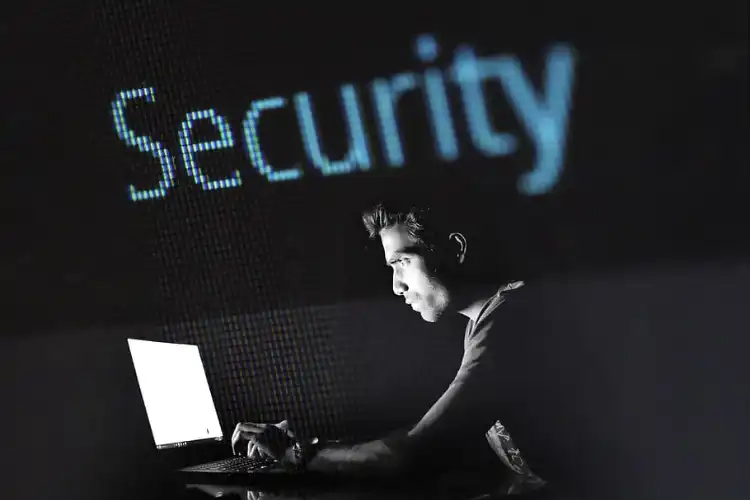Hackers are criminals that break into a system or system of devices without permission, typically to steal personal or confidential information.
Firewalls, virus protection software, and safe computing practices are all ways to keep your machines safe.
Turning off Bluetooth when it’s not in use, being selective about the Wi-Fi networks you connect to, and installing security software can all help keep your mobile devices safe.
In addition to opening up new opportunities and giving rise to whole new businesses, the explosion of the Internet in the 1990s also brought about some unintended consequences. Email inboxes were inundated with spam, and business networks were crippled by malware. Computer hacking is a modern form of theft that involves breaking into a computer and obtaining data, or fooling a user into disclosing private information. This information can then be used to steal or extort money or other valuables, or even someone’s identity.
Who or what are hackers, exactly?
Hackers are those who breach into computers, tablets, and cellphones linked to the internet in order to steal, alter, or erase data.
Hackers typically get access to equipment for malevolent reasons, much as other types of burglars. (With the exception of “white hat hackers,” who are employed by businesses to breach their systems in order to identify vulnerabilities and provide solutions.) Malware (software used for malicious purposes) is commonly installed in devices without the owner’s knowledge or consent, making it easier for hackers to steal, modify, or erase data. Before you even realize there was a breach, these criminals could steal your most sensitive information.
The conclusion here is that hackers want to break into your devices and steal private information.
Preventing intruders from accessing your computer
Most businesses rely on the internet to do things like manage finances, purchase and keep track of merchandise, run marketing and public relations campaigns, connect with clients, and participate in social media, despite the presence of computer hackers. Even though many large companies have implemented extensive security procedures, news of major computer breaches remains a common occurrence.
Many small businesses are easy prey because they lack the resources to invest in costly cybersecurity solutions and may also misjudge the severity of the threat posed by cybercriminals. Use these safety measures to keep your electronic gadgets and private information secure:
Install a firewall first.
Both Windows and macOS include firewalls by default, which are security programs used to prevent unauthorized access to your computer system. Firewalls detect and warn you to any efforts to break into your company network, protecting your data and your organization.
Depending on your broadband router, which likely has its own firewall built in for protection, you may also want to invest in a hardware firewall from a company like Cisco, Sophos, or Fortinet. A second corporate networking firewall is available for purchase if your company has outgrown its current one.
Two, get some virus protection.
Malware and viruses are pervasive in today’s connected world. Bitdefender, Panda Free Antivirus, Malwarebytes, and Avast are just a few of the antivirus apps available to safeguard your OS from malicious code and software. Viruses might have obvious consequences, such as slowing down your computer or erasing crucial files, or they can have less obvious consequences.
In order to keep up with the constant stream of new malware, some of the more sophisticated antivirus applications offer automatic updates. Don’t ignore your antivirus software after you’ve installed it. Keep your computer virus-free by scanning it manually or on a regular basis.
Put in an anti-spyware program in third.
Spyware is a type of malicious software designed to monitor and collect data about an individual or an organization without the target’s knowledge. It is designed to evade detection and removal efforts, and it may display intrusive advertisements or search results with the aim of redirecting you to a predetermined list of websites, many of which are dangerous.
In order to steal login credentials and financial data, some malware tracks every key you press. Anti-spyware software is designed to combat spyware specifically, however it is also commonly found in other antivirus suites. Anti-spyware software protects your computer in real time by monitoring network traffic for malicious code and then preventing its execution.
Four, make your passwords as complicated as possible.
The best approach to stop hackers from getting into your network is to use strong passwords. Passwords make it easier or harder for a hacker to gain access to your system.
Longer and more complicated typically equals more secure. Make sure your password is at least eight characters long and contains a mix of letters, numbers, and special characters. In a matter of minutes, hackers may use their array of tools to crack simple passwords.
Enable dynamic ARP inspection on your switches and routers. It can safeguard your network and infrastructure from a variety of assaults.
Avoid using your birthday or any other easily traceable information as part of your password.
Content writer with years of expertise in copywriting, freelancing, online marketing, and SEO

